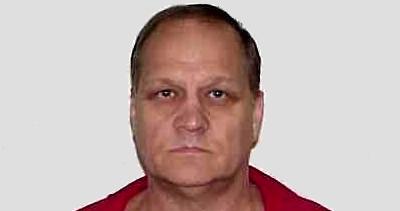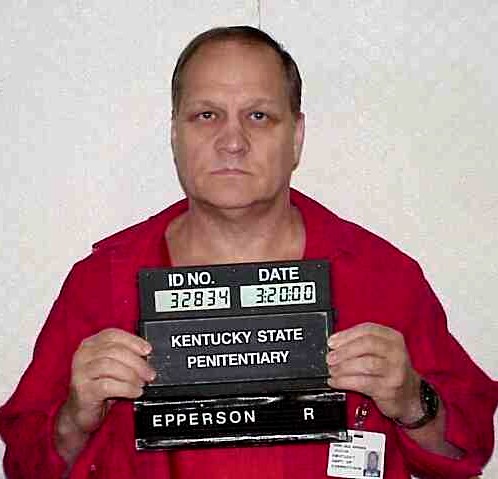The ruling, in the case of Roger Dale Epperson and Benny Lee Hodge,
partially reverses a 2005 decision that the state wasn't required to
pay the fees.
Epperson and Hodge were condemned to death for the August 1985
robbery and murder of Tammy Acker in the Fleming-Neon community of
Letcher County, along the Kentucky-Virginia border.
Hodge sought to bring 23 witnesses to a hearing about whether his
attorney at trial failed to present mitigating evidence for jurors to
consider before recommending a sentence.
Justice John D. Minton Jr., in a 14-page opinion written for the
court, said the state should be required to pay for the witnesses'
expenses if the defendant has raised an issue that can't be resolved
without a hearing and the out-of-county witnesses' live testimony is
necessary for a full presentation of the case.
"A ruling to the contrary would deprive those indigent post-conviction
petitioners of their right to present fully their non-frivolous claims
to the court," Minton wrote.
Justice Bill Cunningham, joined by Chief Justice Lambert and
Justice Will T. Scott, said the trial judge should have the discretion
to use affidavits and other procedural aides in determining the need
for the witnesses.
Cunningham questioned whether some of the witnesses would be able
to provide mitigating evidence because the case went to trial 20 years
ago.
"What value any of these state witnesses would have to mitigate, at
this late date, such an atrocious crime, committed so long ago, makes
me wonder," Cunningham wrote. "This is not to mention the
implausibility, if not impossibility, of defense counsel at trial in
the distant past - or those called on his or her behalf - now being
able to accurately recall why such witnesses were not presented, or
even if counsel was ever made aware of them."
Allison Martin, a spokeswoman for the Kentucky attorney general's
office, said, "We disagreed with the arguments on appeal, but we are
pleased that the court's opinion will allow these cases to move
forward and bring closure for the victims' families."
Dawn Jenkins, a spokeswoman for the Department of Public Advocacy,
which represents Epperson, said the decision is good news for indigent
and poor defendants, particularly those on death row.
"If someone does a really lousy job at trial ... in the past, we've
not been able to get witnesses to the hearings," Jenkins said.
Hodge asked Special Judge Eddy Coleman to grant funds to bring 23
witnesses from Tennessee for a hearing. Coleman denied the request.
The hearing on the performance of the attorneys for Hodge and Epperson
has been on hold until the funding issue was cleared up.
During oral arguments in November, prosecutors argued that defense
witnesses must show they cannot afford to travel to the hearing before
being reimbursed for expenses.
Minton rejected that argument, saying because prosecution witnesses
don't have to meet that requirement, it shouldn't apply to defense
witnesses either.
"Out-of-county witnesses called on behalf of indigent post-conviction
petitioners are entitled to reimbursement in the same manner as are
witnesses for the Commonwealth," Minton wrote for the court.
Epperson and Hodge were convicted in June 1986 in Acker's death.
Prosecutors said the pair, along with a third man, Donald Terry
Bartley, broke into a physician's home on Aug. 8, 1985, and choked the
man unconscious. The three then stabbed Acker to death while stealing
$1.9 million, handguns and jewelry, prosecutors said.
Bartley pleaded guilty to his role in the crimes and is serving a
life sentence.
Epperson and Hodge received second death sentences in November 1996
for the murders of Bessie and Edwin Morris in their home in Gray Hawk,
Ky., on June 16, 1985.


